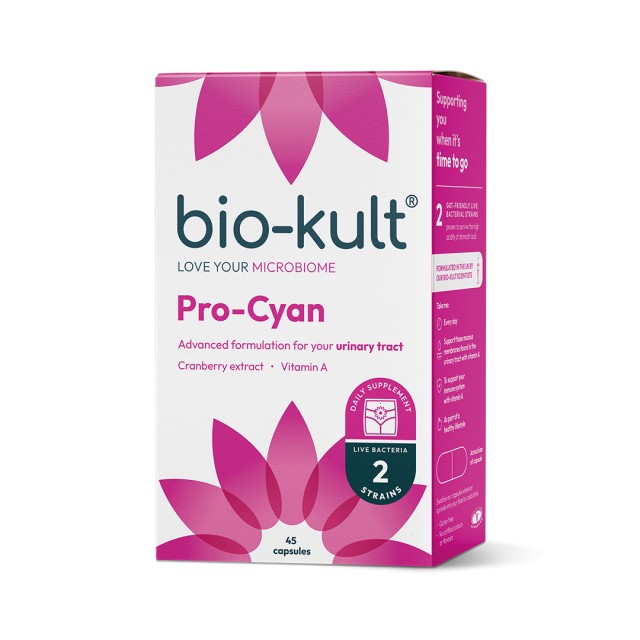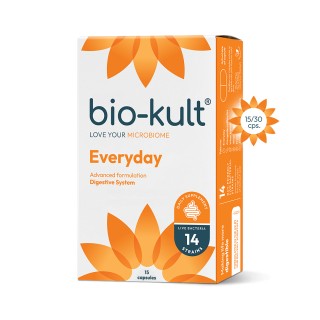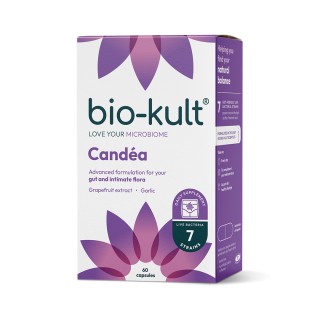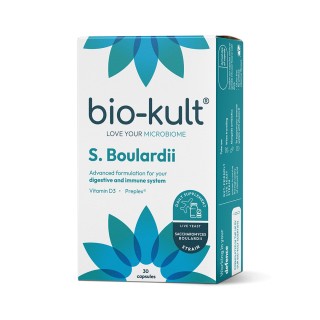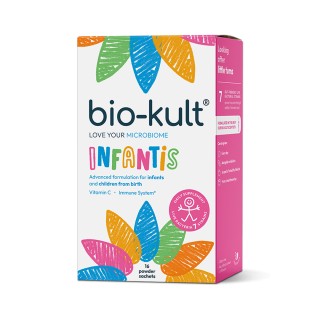Food sources rich in Vitamin A
Vitamin A is found naturally in many foods and is added to some foods, such as milk and cereal.
You can get recommended amounts of vitamin A by eating a variety of foods, including beef liver and other organ meats, some types of fish, such as salmon, green leafy vegetables and other green, orange, and yellow vegetables, such as broccoli, carrots, and squash.
Fruits, including cantaloupe, apricots, and mangos are also a good source of vitamin A.
Bio-Kult products containing Vitamin A
Did you know?
Friendly strains of bacteria can reduce episodes of urinary tract infections (UTIs) and the number of antibiotic treatments by 79%.
with
Information source:
Probiotic and cranberry supplementation for preventing recurrent uncomplicated urinary tract infections in premenopausal women: a controlled pilot study. Koradia P, Kapadia S, Trivedi Y, Chanchu G, Harper A. Expert Review of Anti-infective Therapy 2019 (DOI: 10.1080/14787210.2019.1664287)
